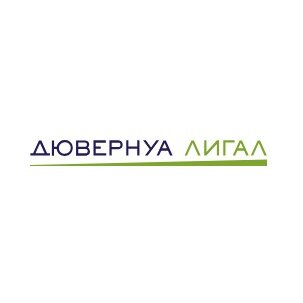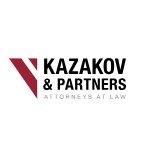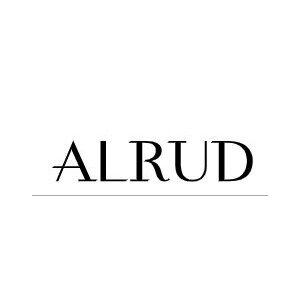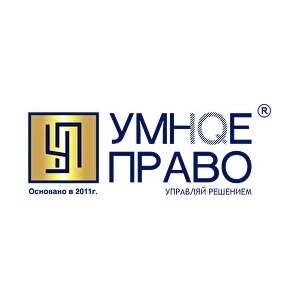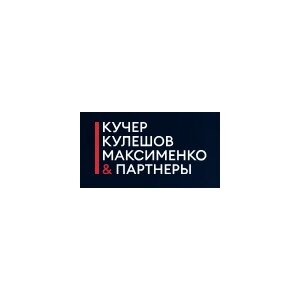Best Funds & Asset Management Lawyers in Russia
Share your needs with us, get contacted by law firms.
Free. Takes 2 min.
Or refine your search by selecting a city:
List of the best lawyers in Russia
About Funds & Asset Management Law in Russia
Funds and asset management law in Russia governs the organization, operation, and regulation of investment funds and asset managers. This sector involves the collective management of clients' finances with the goal of maximizing returns on investments while following regulatory requirements. Russian law distinguishes between different types of asset management entities, such as mutual funds, non-state pension funds, and management companies. The Central Bank of Russia acts as the primary regulator for the industry, establishing standards for transparency, risk management, and reporting. The sector is subject to regular updates to address changes in financial markets and international best practices.
Why You May Need a Lawyer
Legal advice in funds and asset management is essential due to the complexity of regulations and the potential financial risks involved. Common reasons to consult a legal specialist include:
- Setting up a fund or management company in compliance with Russian law
- Understanding licensing and registration requirements
- Drafting and reviewing fund documentation and client agreements
- Resolving disputes with clients, partners, or regulatory authorities
- Ensuring compliance with anti-money laundering (AML) and know-your-customer (KYC) rules
- Adapting to regulatory changes or international sanctions
- Assisting with mergers, acquisitions, or restructurings in the asset management sector
A lawyer with experience in funds and asset management can help protect your interests, manage risks, and ensure that your activities remain within the framework of Russian law.
Local Laws Overview
In Russia, the legal environment for funds and asset management is shaped by several key laws and regulations:
- The Civil Code of the Russian Federation - Establishes the framework for property and financial relations
- Federal Law No. 156-FZ "On Investment Funds" - Regulates activities of mutual funds and their management companies
- Federal Law No. 75-FZ "On Non-state Pension Funds" - Outlines rules for pension fund operations and management
- Federal Law No. 39-FZ "On the Securities Market" - Provides regulations for professional participants, including asset management firms
- Central Bank of Russia regulations and directives - Set out licensing, reporting, and operational standards
- Anti-money laundering and counter-terrorism financing rules - Mandatory for all market participants
Management companies are required to obtain a license from the Central Bank of Russia, maintain minimum capital levels, and report regularly on their activities. Funds must follow restrictions on investment activities, asset types, and disclosure to clients. Both domestic and foreign investors face limitations and scrutiny, especially in sectors affected by sanctions or national security concerns.
Frequently Asked Questions
What types of investment funds exist in Russia?
There are several types, including open-end mutual funds, closed-end mutual funds, private equity funds, non-state pension funds, and unit investment funds. Each has specific rules regarding investor eligibility, liquidity, and asset allocation.
Who regulates funds and asset managers in Russia?
The Central Bank of Russia is the main regulator. It issues licenses, oversees compliance, and imposes sanctions for violations.
Can foreign investors participate in Russian funds?
Yes, foreign investors can invest in Russian funds, subject to certain restrictions and registration requirements, particularly in sectors sensitive to national interests or affected by sanctions.
What is the process for setting up a management company?
Establishing a management company requires registration as a legal entity, obtaining the appropriate license from the Central Bank of Russia, hiring qualified staff, and developing internal control and compliance systems.
What are the main compliance obligations for asset managers?
Asset managers must comply with capital adequacy requirements, AML and KYC regulations, regular reporting, and corporate governance standards. They also have fiduciary duties to clients and must avoid conflicts of interest.
Are mutual funds required to have independent oversight?
Yes, mutual funds typically require a supervisory board or a trustee to oversee management decisions and protect investor interests.
What are the disclosure requirements for funds?
Funds must provide regular reporting to investors, including financial statements, asset composition, valuation practices, and performance updates. Significant events must be disclosed promptly.
How are disputes between investors and fund managers resolved?
Disputes can be resolved through internal complaint mechanisms, mediation, arbitration, or the Russian courts, depending on the issue's nature and the agreement between parties.
Can funds invest in foreign assets?
Funds can invest in foreign assets, but there are restrictions on the proportion and types of foreign investments, especially where foreign sanctions or currency controls apply.
What are the penalties for non-compliance?
Penalties for non-compliance include fines, license suspension or revocation, reputational damage, and, in severe cases, criminal liability for fraudulent activities.
Additional Resources
For further information and official guidelines, the following resources are recommended:
- Central Bank of Russia - Regulator for funds and asset management companies
- National Association of Securities Market Participants (NAUFOR) - Industry organization providing best practices and support
- Federal Antimonopoly Service - Oversees competition and fair practices in financial markets
- Russian Ministry of Finance - Issues policy guidance and draft laws relating to asset management
- Association of Russian Banks - Useful for insights on banking aspects tied to asset management
- Legal information systems such as ConsultantPlus or Garant for up-to-date legislative texts
Next Steps
If you need legal assistance in the field of funds and asset management in Russia, consider taking the following steps:
- Clearly define your objectives and gather relevant documents related to your activities or inquiry
- Research and shortlist law firms or legal specialists with proven expertise in funds and asset management
- Check the credentials, reputation, and relevant experience of your potential legal advisor
- Arrange a consultation to discuss your situation, the potential risks involved, and receive initial guidance
- Engage a legal advisor with a retainer or specific agreement that outlines the scope of work and fees
- Stay informed of updates in regulations and seek ongoing legal advice for complex or high-value transactions
Taking a proactive approach and seeking professional legal guidance is crucial in navigating the regulatory and operational complexities of the Russian funds and asset management sector.
Lawzana helps you find the best lawyers and law firms in Russia through a curated and pre-screened list of qualified legal professionals. Our platform offers rankings and detailed profiles of attorneys and law firms, allowing you to compare based on practice areas, including Funds & Asset Management, experience, and client feedback.
Each profile includes a description of the firm's areas of practice, client reviews, team members and partners, year of establishment, spoken languages, office locations, contact information, social media presence, and any published articles or resources. Most firms on our platform speak English and are experienced in both local and international legal matters.
Get a quote from top-rated law firms in Russia — quickly, securely, and without unnecessary hassle.
Disclaimer:
The information provided on this page is for general informational purposes only and does not constitute legal advice. While we strive to ensure the accuracy and relevance of the content, legal information may change over time, and interpretations of the law can vary. You should always consult with a qualified legal professional for advice specific to your situation.
We disclaim all liability for actions taken or not taken based on the content of this page. If you believe any information is incorrect or outdated, please contact us, and we will review and update it where appropriate.
Browse funds & asset management law firms by city in Russia
Refine your search by selecting a city.



